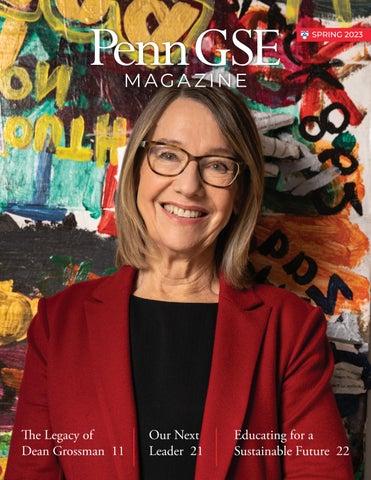University of Pennsylvania GSE Launches Algebra 1 Fellowship to Elevate Math Education in Philadelphia
Introducing the Algebra 1 Fellowship: Empowering Philadelphia’s Math Educators
The Graduate School of Education at the University of Pennsylvania (Penn GSE) has initiated a groundbreaking Algebra 1 Fellowship designed to transform mathematics teaching within Philadelphia’s public school system. This program aims to provide teachers with specialized training, innovative resources, and mentorship opportunities to significantly improve student achievement in Algebra 1, a foundational course critical to academic success in STEM fields.
Fellows will participate in dynamic workshops, receive personalized coaching, and collaborate with peers to overcome common instructional challenges. The fellowship’s core objectives include:
- Enhancing teachers’ mastery of Algebra 1 content and instructional techniques
- Adopting interactive, student-focused teaching approaches
- Leveraging formative assessments to tailor instruction effectively
- Fostering a professional community for ongoing knowledge sharing
| Program Element | Description | Anticipated Benefit |
|---|---|---|
| Interactive Workshops | Hands-on training sessions | Refined pedagogical skills |
| One-on-One Mentoring | Individualized coaching | Targeted professional development |
| Curriculum Resources | Access to innovative teaching materials | Enhanced lesson design |
| Collaborative Networks | Peer learning groups | Exchange of effective practices |
Advancing Equity and Excellence in Urban Math Classrooms
Addressing the persistent achievement gaps in urban math education, this fellowship prioritizes equitable access to high-quality Algebra 1 instruction. By equipping educators with evidence-based strategies, the program aims to deepen students’ conceptual understanding and engagement. Key features include:
- Collaborative coaching that encourages reflective practice and peer support
- Instructional methods informed by student data to meet diverse learning needs
- Culturally relevant teaching that connects mathematical concepts to students’ lived experiences
Preliminary feedback from participants indicates increased confidence in delivering challenging content while fostering inclusive classrooms. The fellowship also promotes sustained collaboration among educators, researchers, and community members to ensure continuous growth and scalability. The following table outlines the program’s targeted outcomes:
| Objective | Projected Result |
|---|---|
| Teacher Skill Enhancement | Elevated instructional quality and subject mastery |
| Student Performance Improvement | Increased Algebra 1 proficiency and learner confidence |
| Equitable Learning Opportunities | Closing achievement gaps across schools |
Integrating Practical Experience with Research-Driven Instructional Methods
The fellowship combines immersive classroom practice with research-supported teaching techniques. Fellows engage in supervised instruction complemented by targeted professional development, aiming to strengthen both content knowledge and pedagogical effectiveness. The curriculum incorporates strategies such as formative assessments, cooperative problem-solving, and culturally responsive teaching.
Continuous feedback from seasoned mentors and educational researchers ensures that teaching approaches adapt to student needs and emerging best practices. Program highlights include:
- Weekly coaching sessions emphasizing data-informed instructional adjustments
- Collaborative lesson design with fellow educators and experts
- Access to the latest research on math learning and cognition
| Program Component | Details |
|---|---|
| Experiential Training | Classroom teaching with real-time guidance |
| Evidence-Based Practices | Instructional methods validated by research |
| Mentorship | Support from experienced educators and scholars |
Scaling Collaborative Networks for Long-Term Educational Impact
Experts in education reform stress that sustainable improvements in math teaching arise from collaborative ecosystems involving teachers, school leaders, and community partners. These networks foster continuous professional growth and innovation, creating resilient support systems adaptable to evolving challenges.
Recommended strategies for expanding collaborative models include:
- Developing localized fellowships and learning communities to promote peer mentorship and shared expertise
- Utilizing data-driven feedback mechanisms to customize professional development for specific school environments
- Strengthening partnerships between universities and schools to maintain resources and momentum
| Collaboration Aspect | Focus Area | Expected Benefit |
|---|---|---|
| Teacher Learning Communities | Instructional Enhancement | Improved student outcomes |
| University-School Partnerships | Resource Sharing | Stronger professional support |
| Data-Informed Coaching | Targeted Teacher Growth | Refined teaching practices |
Conclusion: A Promising Step Toward Math Education Reform in Philadelphia
As Philadelphia’s public schools embark on the Algebra 1 Fellowship spearheaded by Penn GSE, the initiative holds great promise for elevating math instruction and boosting student achievement district-wide. By providing educators with focused training, mentorship, and collaborative opportunities, this program addresses longstanding challenges in algebra education and lays the groundwork for a more equitable and effective math learning environment. Stakeholders remain optimistic that this innovative fellowship will serve as a catalyst for sustained improvement in Philadelphia’s math education landscape.








